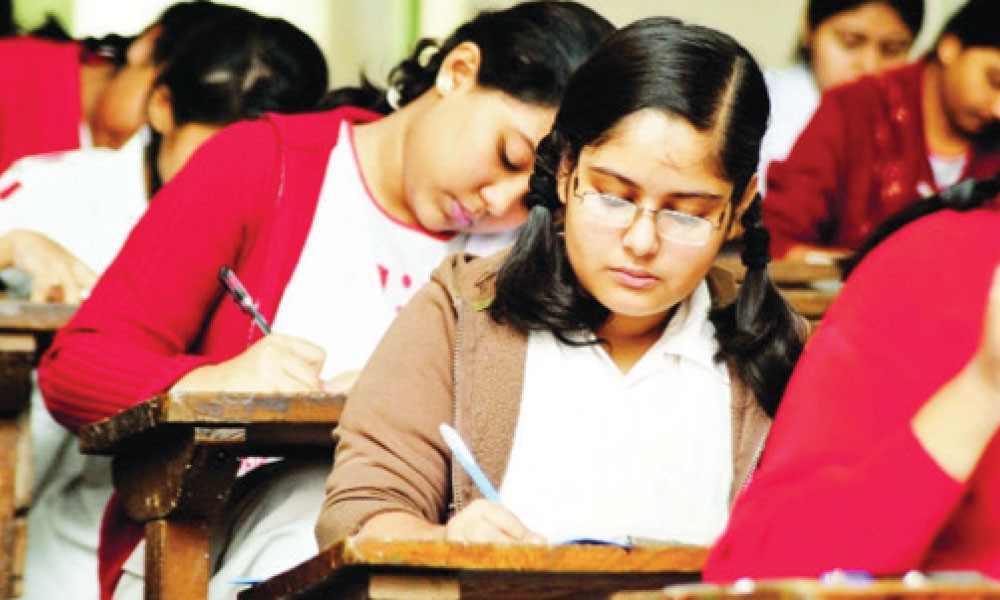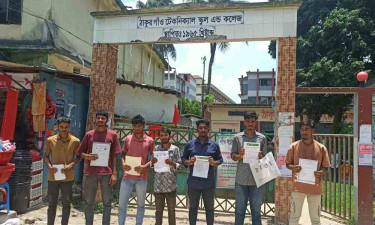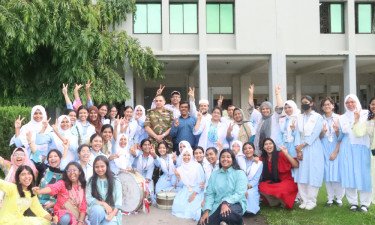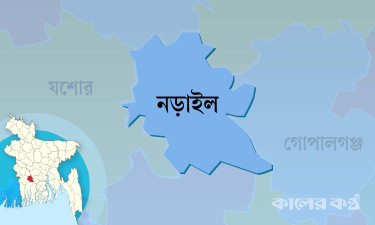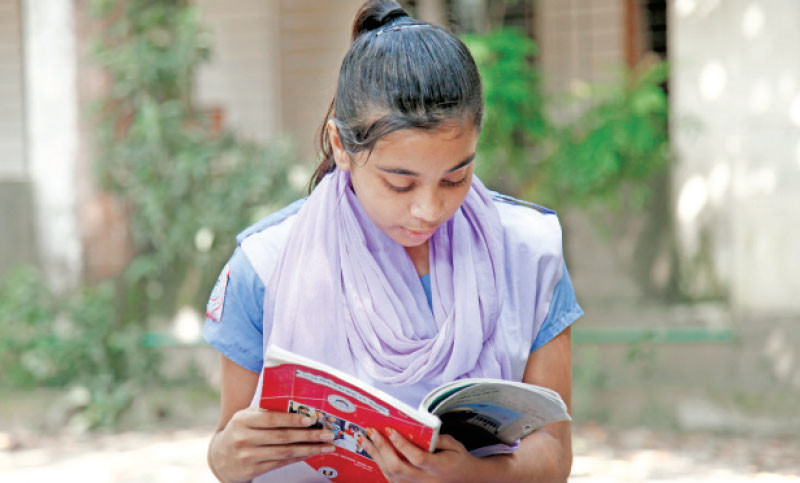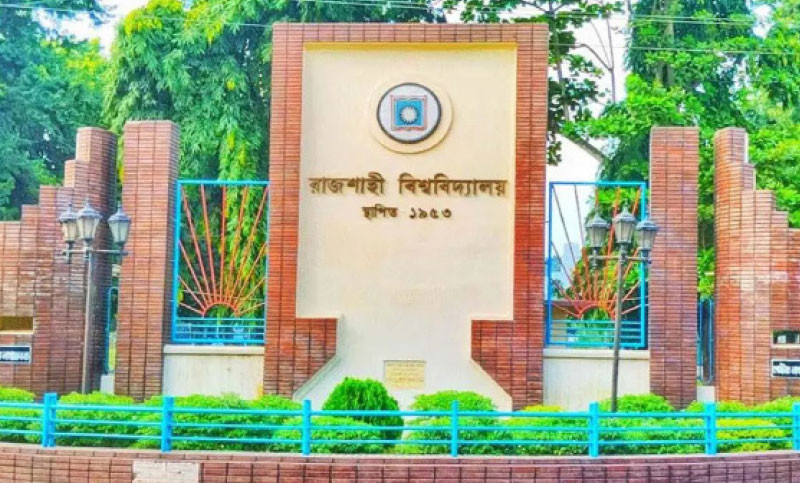Unit–10
Lesson-4(B)
Read the passage. Then answer the questions below.
Zahir Raihan was one of the most talented film-makers in Bangladesh. He was born on 19 August 1935 in the village Majupur in Feni district. He was an active worker of the Language Movement. He was one of the ten students to go out in a procession on 21 February 1952 despite a ban on such activities imposed by the authorities. As a result, he and many others were arrested and taken to prison. Raihan was also present at the historical meeting of Amtala on 21 February 1952. He also took part in the Mass Movement in 1969. In 1971, he joined the Liberation War. All through his life, Zahir Raihan dreamt of a democratic society, a society that would ensure freedom of speech. He had many dreams about our film industry too. He made a legendary film Jibon Theke Neya based on the Language Movement of 1952. It was a protest against the autocratic government then ruling our country. The family portrayed in that film symbolically represented East Pakistan. The family was ruled by an autocrat who had to go to prison for her conspiracy. During the Liberation War in 1971, this film was shown outside Bangladesh. Celebrated film-makers like Satyajit Ray, Mrinal Sen, and Ritwik Ghatak appreciated the film. Raihan gave all the money the film made to the Freedom Fighters’ trust. Besides, his great documentary on Pakistani atrocities, Besides, his great documentary on Pakistani atrocities, Stop Genocide, helped create world sentiment in favour of our liberation war. On 30 December 1971, someone informed Raihan about an address somewhere at Mirpur where he might find his brother, the famous writer Shahidullah Kaiser, who had gone missing from 14 December 1971. Kaiser was captured and killed by the Pakistani army and the local collaborators during the last days of the war. Accordingly, Raihan left home to get his brother back but he never returned. Zahir Raihan’s dream was fulfilled. But it’s a pity that this dreamer could not live to see his dream come true.
Choose the correct answer from the following alternatives.
(a) Which of the following word describes Zahir best?
(i) brilliant (ii) polite
(iii) energetic (iv) revolutionary
(b) The phrase ‘Autocratic government’ means ____.
(i) a government system in which one person has a complete power
(ii) a person who expects to be obeyed by others
(iii) a government of the people
(iv) a government by the people and for the people
(c) Zahir Raihan did not participate in ____.
(i) the Language Movement
(ii) the Mass Movement
(iii) world war
(iv) the liberation war
(d) ‘stop genoside’ was a ____.
(i) novel (ii) documentary
(iii) film (iv) drama
(e) What does the expression ‘creat world sentiment’ mean in the passage?
(i) to make the sympathy of other nations
(ii) to get support of the people of the world for our freedom
(iii) to gather the people of the whole world
(iv) to request the people of other country to fight for us
(f) Zahir dreamt of a/an ____.
(i) autocratic society
(ii) society full of malice, hatred and jealousy
(iii) democratic society
(iv) undisciplined society
(g) The word ‘collaborator’ means ____.
(i) foreigner (ii) professor
(iii) patriot (iv) associate
(h) Zahir Raihan’s profession was ____.
(i) farming (ii) film making (iii) photography (iv) journalism
(i) Which one of the following doesn’t get hindrance in a democratic society?
(i) freedom of speech
(ii) movement
(iii) imperialism
(iv) atrocities
(j) The main theme of the passage is ____.
(i) about Zahir’s last day
(ii) about Zahir’s activities
(iii) about Zahir’s life
(iv) about Zahir’s contribution
Answers
(a) (i) brilliant
(b) (i) a government system in which one person has a complete power
(c) (iii) world war
(d) (ii) documentary
(e) (ii) to get support of the people of the world for our freedom
(f) (iii) democratic society
(g) (iv) associate
(h) (ii) film making
(i) (i) freedom of speech (j) (iv) about Zahir’s contribution
